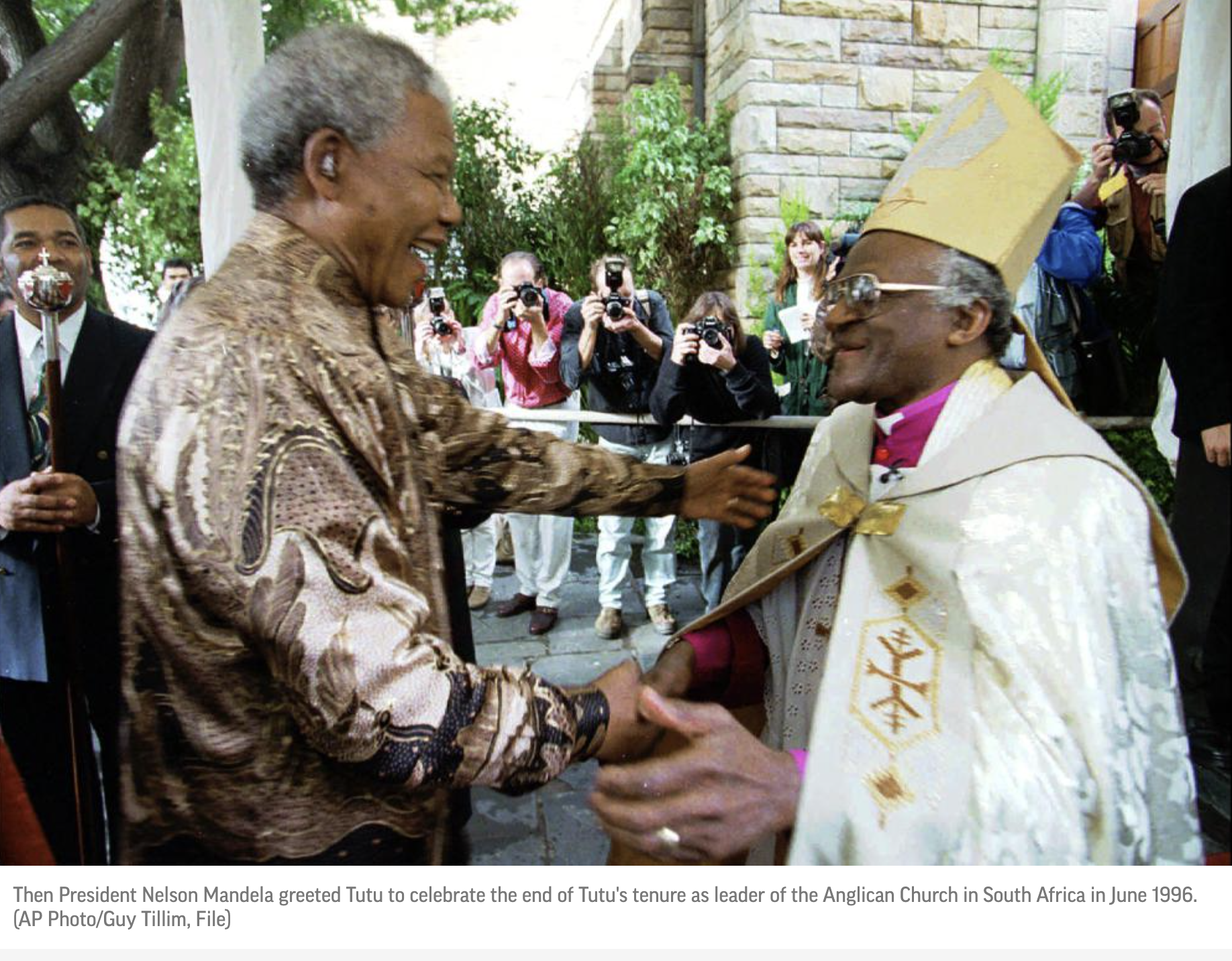Desmond Tutu, South Africa’s Nobel Peace Prize-winning icon, an uncompromising foe of apartheid and a modern-day activist for racial justice and LGBT rights, died Sunday at 90. South Africans, world leaders and people around the globe mourned the death of the man viewed as the country’s moral conscience.
Tutu worked passionately, tirelessly and non-violently to tear down apartheid — South Africa’s brutal, decades-long regime of oppression against its Black majority that only ended in 1994.
The buoyant, blunt-spoken clergyman used his pulpit as the first Black bishop of Johannesburg and later as the Anglican Archbishop of Cape Town, as well as frequent public demonstrations, to galvanize public opinion against racial inequity, both at home and globally.
Nicknamed “the Arch,” the diminutive Tutu became a towering figure in his nation’s history, comparable to fellow Nobel laureate Nelson Mandela, a prisoner during white rule who became South Africa’s first Black president. Tutu and Mandela shared a commitment to building a better, more equal South Africa.
Tutu died peacefully at the Oasis Frail Care Center in Cape Town, the Archbishop Desmond Tutu Trust said. He had been hospitalized several times since 2015 after being diagnosed with prostate cancer in 1997.
The San Antonio Observer, a free weekly newspaper, is the city’s only African American newspaper and the largest in South Texas. Published since 1995, the Observer has out lasted its contemporaries. The Observer is audited annually by the Circulation Verification Council, (CVC) for distribution in print and range. The Observer publishes in print every Wednesday with over 62 distribution locations. Thank you to all our readers for your support as we all work together, continuously, ensuring transparency within our community and nation through informative news.
Contact Us Email: contact@saobserver.com | Hours: 24/7 | Address: Publishing Company PO Box 10296 San Antonio, Texas 78210
© 2020 The San Antonio Observer -The Pulse Beat of The Community.





